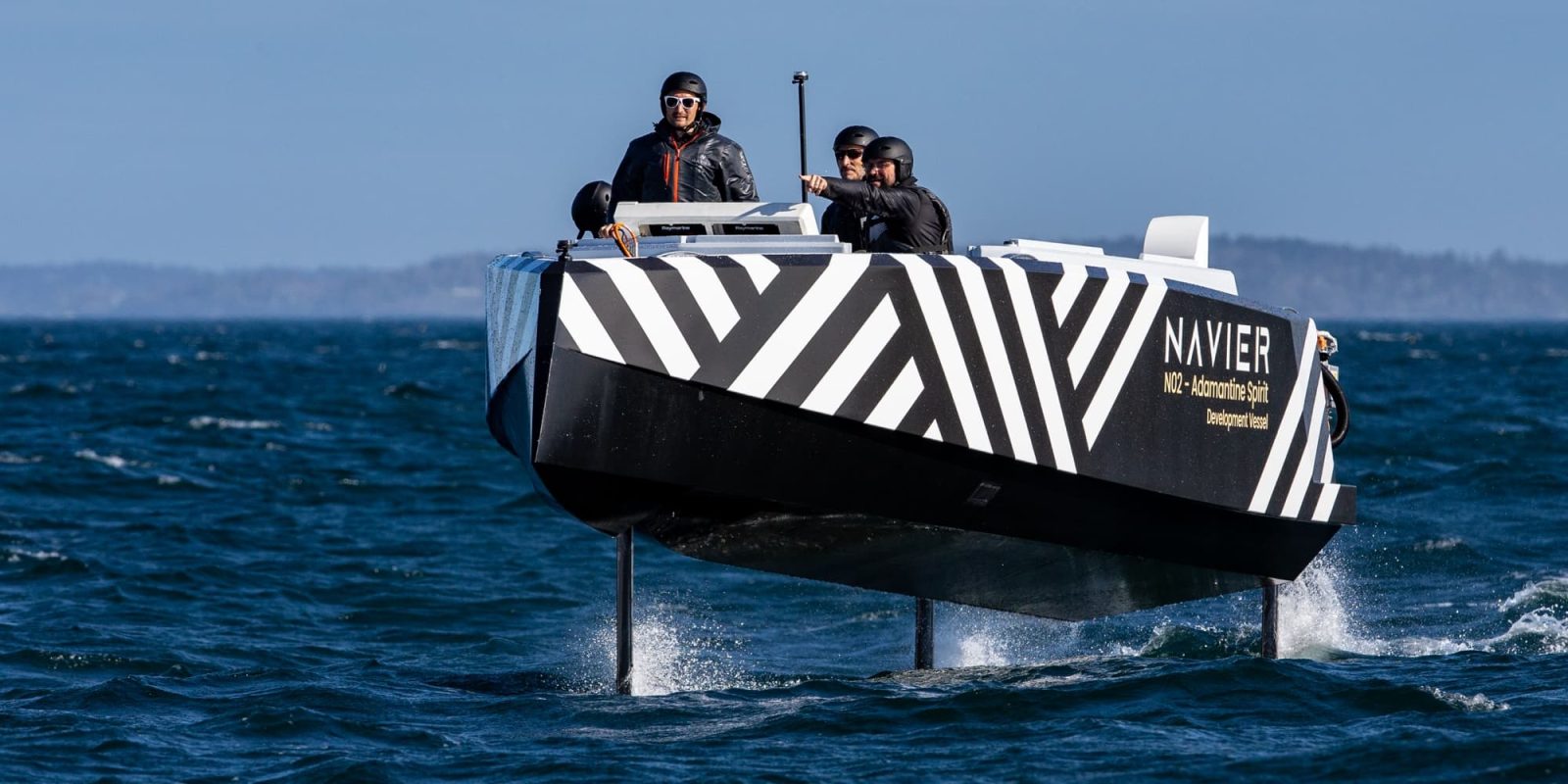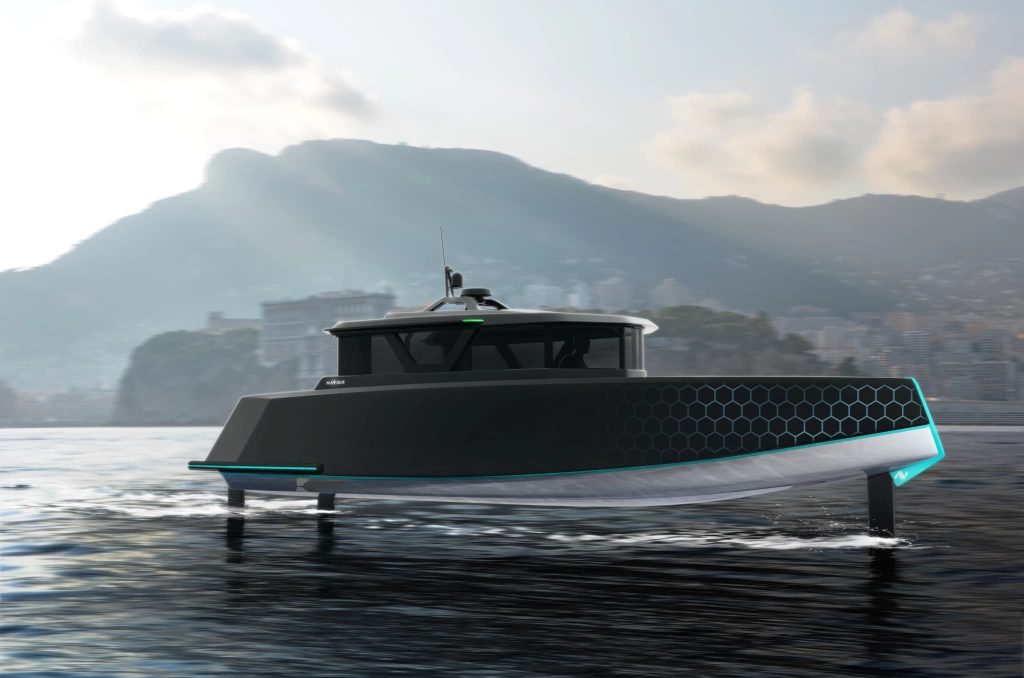
Electric boat manufacturer Navier is showing off the first flight of its Navier N30 hydrofoil electric boat along with a major unveiling event.
Hydrofoils, which function similarly to airplane wings underwater, help lift boats above the surface. By carrying the hull out of the water, hydrofoils can help dramatically reduce the energy required, resulting in longer run times with less “fuel.” In the case of electric boats, that means significantly fewer batteries.
And considering that batteries are the heaviest and most expensive part of an electric boat, hydrofoils are often seen as one of the leading options for increasing the range of electric watercraft.
Navier is now showing off the first test flight of their prototype all decked out in dazzle camouflage.
The company, which broke cover earlier this year to announce a $7.2M funding round, now touts $10M in funding from Next View Ventures, Liquid 2, GFC, Google co-founder Sergey Brin, and Primavera Capital.
Navier claims that its 30 ft (9.1 m) upcoming N30 boat will be “the first commercially available electric hydrofoiling boat in America.”
The company seems to be overlooking the fact that the Candela C-8 is already available for order worldwide, including in the United States, and even has a Florida-inspired variant.
Even so, Navier still says its N30 will be the longest-range electric boat, boasting 75 miles (65 nautical miles or 121 km) of range and speeds of up to 35 knots (40 mph or 64 km/h). Just don’t expect to go 35 knots and get 65 nautical miles of range on the same trip. But with a super-efficient hydrofoil design that is said to be 10x more efficient than most V-hull ICE-powered boats, each trip should be pretty darn efficient.
Its 10-seater capacity is designed to share the fun with a large group of friends.

As founder Sampriti Bhattacharyya explained:
We’re rethinking the boat from the ground up – with software at the core – enabling us to deliver a vessel that is highly differentiated on customer experience and performance. With Navier, the goal is to free our oceans and lakes from fossil fuel pollutants while delivering a luxury and performance based boating experience.
Bhattacharyya, who has a PhD from MIT in robotics and was formerly an aerospace engineer, originally expected that she’d spend her career designing aircraft. As she continued:
I always thought I would build for the sky but the world’s waterways represent the largest opportunity to innovate and create long term impact.
We don’t yet have full specs on the N30 or its hydrofoil system, but the company has mentioned that it will feature autopilot-style technology and can handle flying in seas as high as three to four feet (92-122 cm).
Some of the software-enabled features include:
- Advanced autopilot
- Auto Docking: (the most requested feature)
- Joystick docking & 1 click auto docking options
- Advanced hazard alert/collision detection
- Waypoint following
- Connected to your phone.
- OTA updates for software
- Shore power charging for an overnight charge with a 240V charger found in marinas or DC fast charging in 30 minutes
That autonomous technology seems to be a key part of Navier’s design goals, though other electric boat makers are also developing their own autopilot systems.
With the company’s first N30 models available for reservation, Navier looks intent to become the next big hydrofoil electric boat maker.
Electrek’s Take
It’s great to see new EV companies pop up, though Navier has a long way to go with production if it expects to challenge Candela. The Swedish hydrofoil electric boat maker has years of experience and already boasts a long list of customers with boats in the water, including in the United States.
The company’s original C-7 model has been replaced by its C-8, which looks closer to what Navier’s renders depict. That would make Navier a direct competitor.
For now it seems like Navier is currently using boat builder Lyman-Morse to create its hulls, so the company would need to expand its operations and bring production in house if it hopes to compete on the same level.
But I’ll withold further judgement until I can actually see one of these boats in person. If it flies as well as the Candela C-8 did on my last test ride in Stockholm, I’ll be impressed.
FTC: We use income earning auto affiliate links. More.





Comments